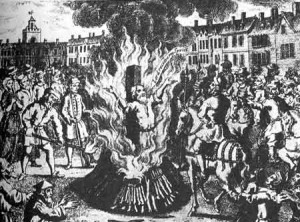Prophet of the Andes
 Segundo Zerubbabel Tzidkiya Villaneuva (1927-2008) was born in a small village in the Andes Mountains of Peru to a Catholic family. When he was 21, his father was murdered and Villaneuva discovered a Bible while going through his father’s things. He started reading the Bible and going to church regularly. However, as he went deeper into his studies, he found no good answers to his questions. He was puzzled by Christian observance of the Sabbath on Sunday instead of Saturday, as the Torah clearly commands. Villaneuva soon became a Seventh-Day Adventist. But the problems and inconsistencies persisted. He learned Hebrew and began reading Scripture in the original language. He then discovered that Christians had mistranslated the Torah to suit their needs, and twisted what the Tanakh really said about the concept of Mashiach, the messiah. After many years, Villaneuva decided to convert to Judaism. He started his own congregation with a group of like-minded individuals, called Bnei Moshe. The movement grew to some 500 individuals, many of whom also found out that they actually had Jewish ancestors—Sephardic Jews who were forcibly converted to Christianity during the Inquisition (called Anusim or Conversos). It took many years, but in August of 1989 a delegation of Israeli rabbis came to Peru and converted Villaneuva and 160 others. Villanueva took on the Hebrew name “Zerubbabel Tzidkiya”. The following year, he made aliyah with a large group of Bnei Moshe. This motivated two more groups of Peruvians to convert to Judaism and make aliyah, including the Bnei Abraham and the Inca Jews. Villaneuva’s story inspired countless others in Latin America to convert to Judaism or explore their Sephardic Jewish ancestry. It is estimated that there are now some 60 communities in 14 countries across Latin America that have returned to Judaism. Villaneuva passed away in Israel and was buried on the Mount of Olives. He has been called “The Prophet of the Andes”.
Segundo Zerubbabel Tzidkiya Villaneuva (1927-2008) was born in a small village in the Andes Mountains of Peru to a Catholic family. When he was 21, his father was murdered and Villaneuva discovered a Bible while going through his father’s things. He started reading the Bible and going to church regularly. However, as he went deeper into his studies, he found no good answers to his questions. He was puzzled by Christian observance of the Sabbath on Sunday instead of Saturday, as the Torah clearly commands. Villaneuva soon became a Seventh-Day Adventist. But the problems and inconsistencies persisted. He learned Hebrew and began reading Scripture in the original language. He then discovered that Christians had mistranslated the Torah to suit their needs, and twisted what the Tanakh really said about the concept of Mashiach, the messiah. After many years, Villaneuva decided to convert to Judaism. He started his own congregation with a group of like-minded individuals, called Bnei Moshe. The movement grew to some 500 individuals, many of whom also found out that they actually had Jewish ancestors—Sephardic Jews who were forcibly converted to Christianity during the Inquisition (called Anusim or Conversos). It took many years, but in August of 1989 a delegation of Israeli rabbis came to Peru and converted Villaneuva and 160 others. Villanueva took on the Hebrew name “Zerubbabel Tzidkiya”. The following year, he made aliyah with a large group of Bnei Moshe. This motivated two more groups of Peruvians to convert to Judaism and make aliyah, including the Bnei Abraham and the Inca Jews. Villaneuva’s story inspired countless others in Latin America to convert to Judaism or explore their Sephardic Jewish ancestry. It is estimated that there are now some 60 communities in 14 countries across Latin America that have returned to Judaism. Villaneuva passed away in Israel and was buried on the Mount of Olives. He has been called “The Prophet of the Andes”.
Video: A Kabbalistic History of the World
Words of the Week
The Jews are a peculiar people: things permitted to other nations are forbidden to the Jews. Other nations drive out thousands, even millions of people, and… no one says a word about refugees. But in the case of Israel, the displaced Arabs have become eternal refugees… Other nations, when victorious on the battlefield, dictate peace terms. But when Israel is victorious, it must sue for peace.
– Eric Hoffer


